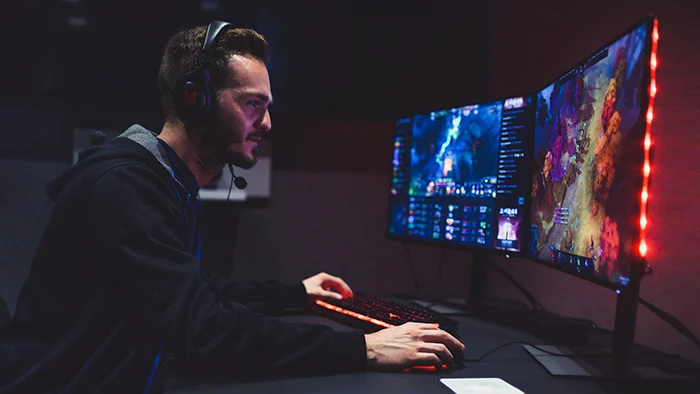In today’s digital age, gaming has evolved from being a pastime to a full-blown industry, captivating millions of players worldwide. While gaming offers entertainment, relaxation, and even a sense of achievement, there’s a darker side to it: gaming addiction. In this article, we’ll delve into the world of gaming addiction, its signs, causes, and potential solutions.
Understanding Gaming Addiction
Gaming addiction, also known as gaming disorder or internet gaming disorder, is characterized by excessive and compulsive gaming behavior that interferes with a person’s daily life. Like other forms of addiction, gaming addiction can have serious consequences on one’s physical, mental, and emotional well-being.
Signs and Symptoms
Recognizing the signs of gaming addiction is the first step in addressing the issue:
- Preoccupation with Gaming: A person is constantly thinking about gaming, even when not playing.
- Loss of Control: Unable to limit the time spent gaming or stop despite negative consequences.
- Neglecting Responsibilities: Failing to fulfill obligations at work, school, or home due to gaming.
- Withdrawal Symptoms: Irritability, restlessness, or anxiety when not gaming.
- Escapism: Using gaming to escape from real-life problems or uncomfortable emotions.
- Loss of Interest: Decreased interest in previously enjoyed activities or hobbies.
- Deceptive Behavior: Lying about the amount of time spent gaming or hiding gaming activities.
- Social Isolation: Withdrawal from friends and family to spend more time gaming.
Causes of Gaming Addiction
Several factors contribute to the development of gaming addiction:
- Escapism: Gaming provides an escape from real-life stressors and challenges.
- Rewards System: Many games use reward mechanisms that trigger the brain’s pleasure centers, encouraging players to continue.
- Peer Pressure: Pressure from friends or online gaming communities can promote excessive gaming.
- Accessibility: The ease of access to games on various platforms and devices.
- Emotional Issues: Individuals with underlying emotional or psychological issues may turn to gaming as a coping mechanism.
Addressing Gaming Addiction
Recognizing and addressing gaming addiction is crucial for affected individuals and their loved ones:
- Self-Awareness: Acknowledge the problem and its impact on your life.
- Set Limits: Establish strict time limits for gaming and adhere to them.
- Seek Professional Help: Consult with a therapist or counselor who specializes in addiction and mental health.
- Support System: Engage with friends and family for emotional support and understanding.
- Alternative Activities: Find alternative hobbies and activities to replace excessive gaming.
- Parental Control: Parents can use parental control tools to limit their child’s gaming time.
- Community and Support Groups: Join support groups or online communities to share experiences and seek advice.
Conclusion
Gaming addiction is a real and concerning issue that affects individuals of all ages. While gaming can be a source of joy and entertainment, it’s essential to maintain a healthy balance and recognize when gaming becomes an addiction. By understanding the signs, causes, and seeking help when needed, individuals can regain control of their lives and find a healthier approach to gaming. Whether you’re an affected individual or concerned about a loved one, remember that there is hope and support available to overcome gaming addiction and lead a fulfilling life.
